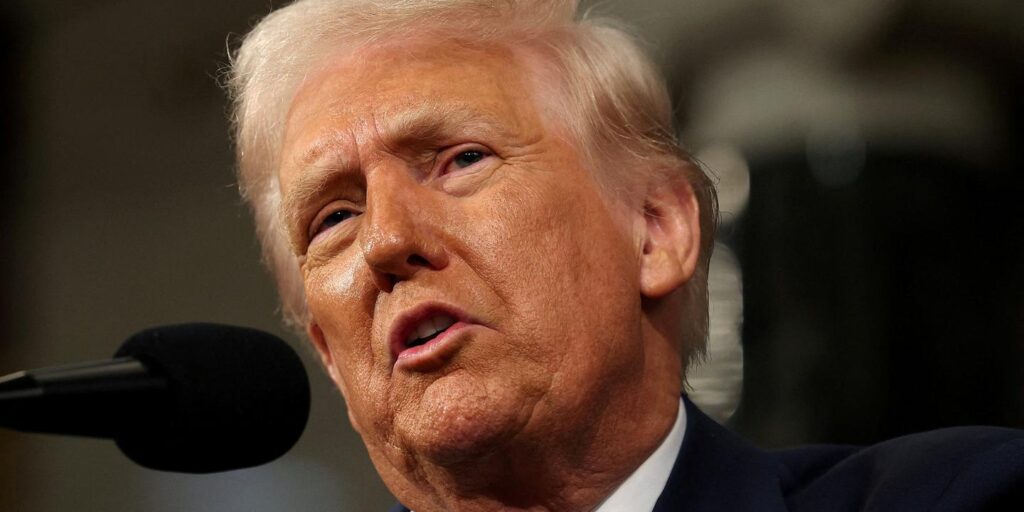Turkiye has called on Israel to stop its repeated violations of a United States-brokered ceasefire in Gaza and let crucial humanitarian aid enter the embattled Palestinian enclave.
Turkiye’s Foreign Minister Hakan Fidan made the statement after top diplomats from several Arab and Muslim countries met in Istanbul on Monday to discuss a United Nations mandate for an international stabilisation force in Gaza, as proposed in a 20-point plan by US President Donald Trump to end the war.
Recommended Stories
list of 4 itemsend of list
Turkiye hosted the foreign ministers of Qatar, Saudi Arabia, the United Arab Emirates, Jordan, Pakistan, and Indonesia at the summit.
After the meeting, Fidan said Israel has failed to fulfill its responsibilities laid out in the US plan by “regularly violating the ceasefire” and preventing food, medicine and other humanitarian assistance from reaching the Palestinians in Gaza.
“We do not want the genocide to restart in Gaza, we want the ceasefire to continue, and we want steps to be taken toward a two-step, permanent peace solution,” Fidan said.
“We do believe that the pressure on Israel from the international society should be sustained,” he added, noting that Israeli attacks have killed nearly 250 Palestinians since the ceasefire took effect on October 10. Al Jazeera’s own coverage has tracked at least 236 such deaths.
The Turkish top diplomat said his country wants to see a post-war framework for Gaza in which Palestinians ensure Palestine’s governance and security. He added that his comments represented a “joint view” of the nations that participated in Monday’s summit.
“Attacks that are trying to provoke Palestinians should end as soon as possible,” he said.
Teetering ceasefire
Monday’s meeting came amid an escalation of Israeli attacks on Gaza and an ongoing blockade on aid, including food and medicines.
Israeli Prime Minister Benjamin Netanyahu launched a strike spree across Gaza last week after finding that a body Hamas had transferred to Israel did not match one of the 13 captives to be handed over as part of the ceasefire deal. The attacks killed more than 100 people, including 46 children, within 24 hours.

Although Israel on Wednesday said it would resume the deal, its attacks continue to kill Palestinians, including three more on Monday.
Aid delivery remains inadequate, with half of Gaza households reporting that they have seen the same or worsening food access since the ceasefire, according to a UN Office for the Coordination of Humanitarian Affairs (OCHA) survey released this week. In the north, no food aid convoy has entered via a direct crossing since mid-September, OCHA said.
Meanwhile, the Gaza Government Media Office said it tracked an average of 145 aid-bearing trucks entering the Gaza Strip daily between October 10 and October 31 – representing just a quarter of the 600 trucks agreed upon in the ceasefire deal.
‘Nothing clear’ about Gaza mandate
Trump’s Gaza deal had proposed the creation of a so-called international stabilisation force (ISF), an international body intended to oversee security inside Gaza. The plan says the US would “work with Arab and international partners” to “train and provide support to vetted Palestinian police forces in Gaza”, relying on consultation with Jordan and Egypt.
But “nothing is clear” about the mandate, Al Jazeera’s Sinem Koseoglu reported from Istanbul, as potential participating nations await further details from the UN Security Council as to the ISF’s precise definition and requirements.
Further complicating matters is which “international partners” Israel would allow to be part of the ISF. Last week, Israel’s Foreign Minister Gideon Saar said Israel would not accept the presence of armed Turkish forces, raising questions about whose troops could be called upon or refused as peacekeepers.
Netanyahu appeared to diverge from Trump on the meaning of the ISF even as he agreed to the plan. During a joint news conference with Trump, the Israeli prime minister told reporters that “Israel will retain security responsibility, including a security perimeter, for the foreseeable future”.
Miroslav Zafirov, a former senior political advisor for the UN Special Coordinator’s Office for the Middle East Peace Process, told Al Jazeera the ISF must be defined under “very clear standards under international law” in order to be effective.
“There are too many elements of the proposal for peace that remain unanswered,” Zafirov said.
Turkiye’s Foreign Minister Fidan said the international community “overestimated” Israel’s readiness to embrace the path towards a two-state solution.
“Israel never agreed on this, and it never had any intention to approve this,” he said. “But the international society has based its opinion on this understanding.”


